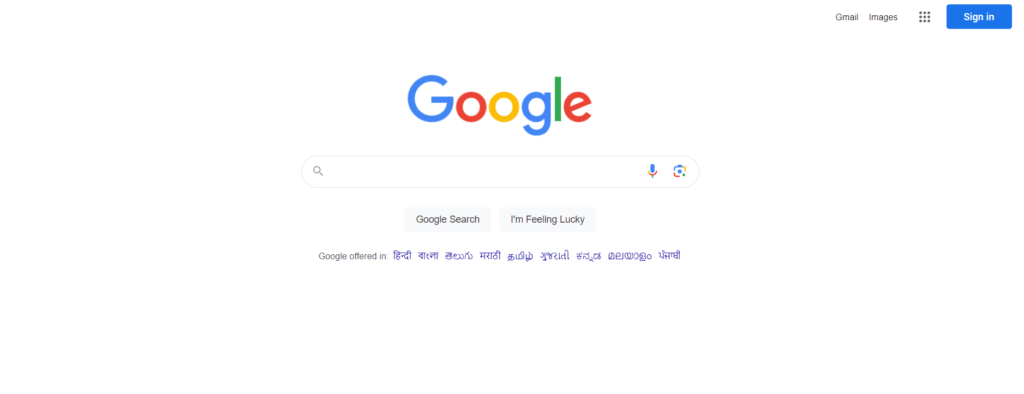
Picture Credit Firstcomacademy
Table of Contents
Fundamental of Digital Marketing Google: A Comprehensive Guide
In the fast-paced digital landscape of today, businesses need to establish a robust online presence to thrive and succeed.
One of the most powerful tools in this endeavor is digital marketing, and when it comes to digital marketing, Google is undeniably at the forefront.
This article will delve into the fundamentals of digital marketing with a focus on leveraging Google’s platforms and tools to achieve optimal results.
Understanding Digital Marketing Fundamentals

Picture Courtesy Skillshop
Fundamental of Digital Marketing Google comprises a wide range of strategies and techniques that are aimed at promoting products, services, or brands through various digital channels.
The primary goal is to connect with target audiences in a personalized and engaging manner. The fundamentals of digital marketing can be summarized in the following key points:
1. Target Audience Identification:
The foundation of any successful digital marketing campaign is a deep understanding of the target audience. Demographics, interests, behaviors, and pain points must be thoroughly researched to create tailored content and messages.
2. Engaging Content Creation:
Compelling and valuable content lies at the core of digital marketing. Whether it’s blog posts, videos, infographics, or social media updates, content should resonate with the audience and address their needs.
3. Multi-Channel Approach:
Digital marketing operates across various platforms and channels such as social media, email, search engines, websites, and more. An integrated approach ensures consistent messaging and wider reach.
4. Search Engine Optimization (SEO):
SEO is crucial for organic visibility on search engines like Google. Optimizing website content with relevant keywords, improving site speed, and ensuring mobile-friendliness are essential for ranking higher in search results.
5. Data Analytics and Tracking:
Measuring the effectiveness of digital marketing efforts is essential. Tracking tools help monitor website traffic, user behavior, conversion rates, and other key performance indicators (KPIs).
Google’s Dominance in Digital Marketing
Google’s platforms and tools are integral to digital marketing success due to its massive user base and the variety of services it offers.
Here are some key Google tools and how they contribute to the fundamentals of digital marketing:
1. Google Search:

Picture Credit Digiviso
With over 90% of the global search engine market share, Google Search is the go-to platform for businesses to improve their online visibility.
By understanding user search intent and optimizing content accordingly, businesses can attract organic traffic to their websites.
2. Google Ads:
Formerly known as Google AdWords, this advertising platform enables businesses to display ads on Google’s search engine results pages (SERPs), partner websites, and YouTube.
With precise targeting options and budget control, businesses can reach their ideal customers effectively.
3. Google My Business:
For local businesses, Google My Business is a game-changer.
It allows businesses to create and manage their Google listings, which appear in local search results and on Google Maps.
This tool helps improve visibility in local searches and provides essential information to potential customers.
4. Google Analytics:
Understanding user behavior is pivotal for digital marketing success.
Google Analytics provides in-depth insights into website traffic, user demographics, bounce rates, and more.
This data informs marketing strategies and helps optimize campaigns.
5. Google Keyword Planner:
Effective SEO and content marketing strategies begin with keyword research.
The Keyword Planner assists in identifying relevant keywords, estimating their search volumes, and suggesting new keyword ideas.
6. Google Trends:
Keeping up with trending topics is vital for staying relevant.
Google Trends highlights popular search queries over time, helping businesses tailor their content to match current interests.
7. YouTube:
As the second-largest search engine globally (owned by Google), YouTube offers opportunities for video marketing.
Businesses can create informative and engaging video content to reach and connect with their audience visually.
Integrating Google Tools into Your Digital Marketing Strategy
To leverage the power of Google’s platforms and tools effectively, consider the following steps:
1. Keyword Research:
Use tools like Google Keyword Planner and Google Trends to identify keywords relevant to your business. Incorporate these keywords naturally into your website content to enhance SEO.
2. Google Ads Campaigns:
Create targeted Google Ads campaigns to ensure your products or services are visible to potential customers at the right time.
Utilize features like location targeting and ad extensions to maximize the impact of your ads.
3. Optimize Google My Business:
If you have a local presence, optimize your Google My Business listing with accurate information, high-quality images, and customer reviews.
This enhances your chances of appearing in local searches.
4. Content Creation with SEO:
Develop content that aligns with user search intent. Incorporate relevant keywords, headers, and meta descriptions to improve your website’s organic search ranking.
5. Data Analysis:
Regularly review Google Analytics data to track website performance, user engagement, and conversion rates.
Adjust your strategies based on these insights.
6. Video Content Strategy:
If feasible, incorporate video content on platforms like YouTube. Visual content often leads to higher engagement and can help explain complex concepts effectively.
In the dynamic realm of digital marketing, mastering the fundamentals is essential for achieving meaningful results.
Google’s suite of platforms and tools provides an invaluable toolkit for businesses to connect with their audience, increase visibility, and drive conversions.
By understanding your target audience, crafting engaging content, and strategically using Google’s offerings, you can pave the way for digital marketing success in today’s competitive landscape.
Remember, staying updated with the ever-evolving digital landscape and adapting your strategies accordingly is key to maintaining a competitive edge.